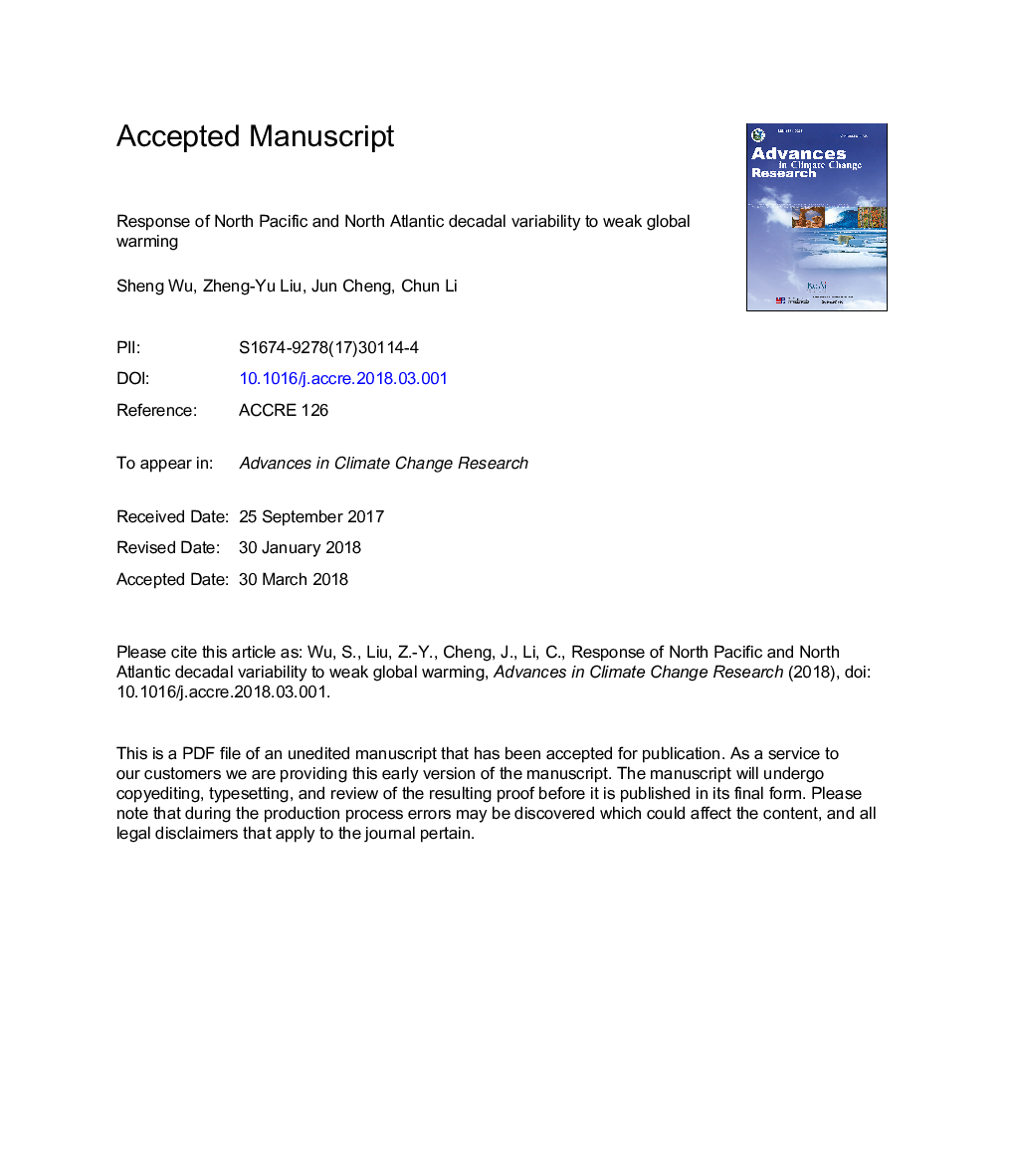| کد مقاله | کد نشریه | سال انتشار | مقاله انگلیسی | نسخه تمام متن |
|---|---|---|---|---|
| 8906150 | 1634087 | 2018 | 18 صفحه PDF | دانلود رایگان |
عنوان انگلیسی مقاله ISI
Response of North Pacific and North Atlantic decadal variability to weak global warming
ترجمه فارسی عنوان
پاسخ تغییرات دهه های آتی شمال اقیانوس آرام و شمال آتلانتیک به گرمایش جهانی ضعیف است
دانلود مقاله + سفارش ترجمه
دانلود مقاله ISI انگلیسی
رایگان برای ایرانیان
موضوعات مرتبط
مهندسی و علوم پایه
علوم زمین و سیارات
علم هواشناسی
چکیده انگلیسی
The Pacific Decadal Oscillation (PDO) and the Atlantic Multidecadal Variability (AMV) are the two dominant low-frequency modes in the climate system. This research focused on the response of these two modes under weak global warming. Observational data were derived from the Hadley Center Sea Ice and Sea Surface Temperature dataset (HadISST) and coupled model outputs from the Coupled Model Intercomparison Project Phase 5 (CMIP5). Changes in PDO and AMV were examined using four models (bcc-csm1-1, CCSM4, IPSL-CM5A-LR, and MPI-ESM-LR) with long weak global warming scenarios (RCP2.6). These models captured the two low-frequency modes in both pre-industrial run and RCP2.6 run. Under weak global warming, the time scales of PDO and AMV significantly decreased while the amplitude only slightly decreased. Interestingly, the standard deviation of the North Pacific sea surface temperature anomaly (SSTA) decreased only in decadal time scale, and that of the North Atlantic SSTA decreased both in interannual and decadal time scales. The coupled system consists of a slow ocean component, which has a decadal time scale, and a fast atmospheric component, which is calculated by subtracting the decadal from the total. Results suggest that under global warming, PDO change is dominated by ocean dynamics, and AMV change is dominated by ocean dynamics and stochastic atmosphere forcing.
ناشر
Database: Elsevier - ScienceDirect (ساینس دایرکت)
Journal: Advances in Climate Change Research - Volume 9, Issue 2, June 2018, Pages 95-101
Journal: Advances in Climate Change Research - Volume 9, Issue 2, June 2018, Pages 95-101
نویسندگان
Sheng Wu, Zheng-Yu Liu, Jun Cheng, Chun Li,
